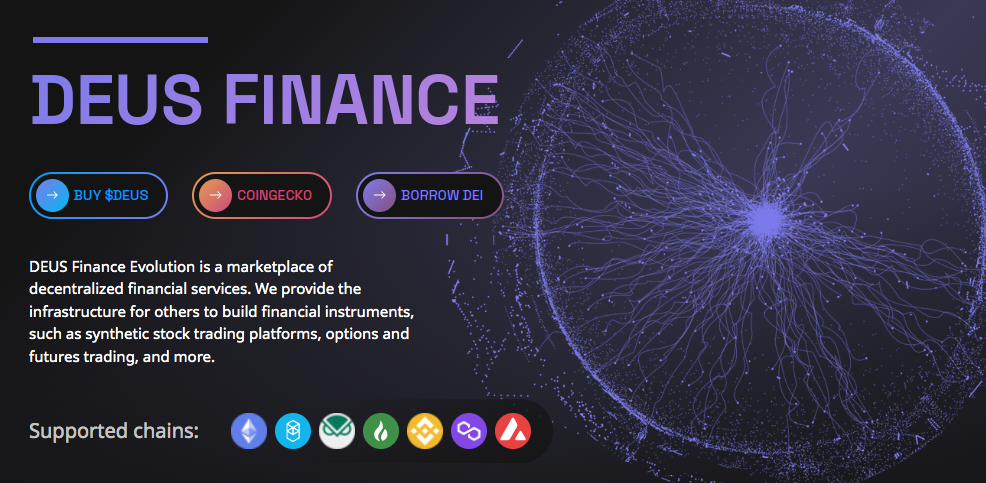
The stablecoin known as DEI, developed and overseen by DEUS Finance, is still standing below its $1 peg for the third day in a row while the developing team has provided no further updates in regards to the measures being taken to restore its value.
According to data from CoinMarketCap, the value of DEI is rising 5% today but it is still standing 41 cents below its peg while the price of DEUS – the native token of the DEUS Finance protocol – is rising 6.5% at $215.8 in mid-day crypto trading action.
The official Twitter account of DEUS Finance (@DeusDao) has not published any new comments regarding the incident. Notably, the founder of the project – Lafayette Tabor – is not active on this social media platform.
DEUS’s last tweet stated that the developing team was “working around the close” to restore DEI’s peg with two proposed courses of actions being presented including a change in the way the pegging mechanism works and the other concerning the issuance of a treasury bond to fully collateralize DEI with liquid reserves.
DEI and The Aftermath of the Terra’s UST Debacle
Similar to Terra’s failed stablecoin UST, DEI is an algorithmic stablecoin that relies on mint and burn mechanisms of the protocol’s native token DEUS to remain pegged to the US dollar.
The protocol’s headaches started months ago when hackers reportedly stole several millions of dollars worth of Ethereum from one of the network’s smart contracts. This incident undermined the public’s trust in DEUS Finance and triggered a sharp decline in the value of DEUS.
Meanwhile, the meltdown of UST may have provoked a wave of distrust for “algostables”, as these tokens are also known, that may have led to a bank run in other similar projects such as DEI.
The proceeds from the treasury bond proposed by the developing team will supposedly be used to push the price of DEI higher by removing a portion of the token’s circulating supply.
In regards to the merits of this proposal, the developing team at DEUS Finance stated: “We believe a confident peg at $1 and fully collateralized backing is the only answer to resolve short-term peg stability”.
At the moment this is written, the collateral ratio of DEI remains at 43% – same as yesterday – which means that DEUS Finance has not managed to secure the required funds to fully collateralized the stablecoin.
Do Failing Stablecoins Pose a Threat to the Entire Ecosystem?
The collapse of Terra’s UST and the shockwaves it has sent across the entire crypto ecosystem are threatening the credibility of cryptocurrencies and blockchain technology according to some prominent figures of the global investment community.
In a Twitter thread published by Bill Ackman, a billionaire hedge fund manager and one of Wall Street’s top voices, the investor argued that even though he considers the blockchain to be a “brilliant technology”, projects like Terra “threaten the entire crypto ecosystem”.
He further stated that the industry should “self-regulate away” the projects that have no underlying business models as “hyping tokens that are not supported by businesses that create value will destroy the entire crypto industry”.
Meanwhile, US Senator Elizabeth Warren said in a statement sent to TIME Magazine: “People have lost their life savings through crypto investments, and there aren’t enough protections in place to safeguard consumers from these risks”. Warren is a member of the US Senate’s Subcommittee on Financial Institutions and Consumer Protection.
The silence of the developing team behind DEI is not contributing to easing investors’ concerns about whether they will be able to recover the money they have lost amid the collapse of the stablecoin.
In the meantime, policymakers and top officials from multiple countries keep pushing for stricter regulations to protect investors from being defrauded by ill-intentioned actors in the crypto ecosystem. These individuals entice unwary investors to deposit their money in the expectation that they will be compensated in a way that nearly no other instruments in the financial markets can.
Cryptoassets are a highly volatile unregulated investment product. No UK or EU investor protection.